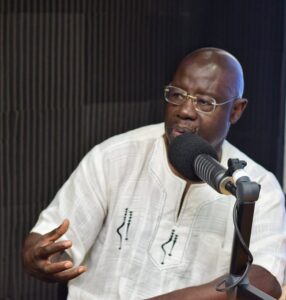
As Uganda approaches its 62nd Independence Day, political analysts and governance experts have examined the nation’s political and economic landscape, shedding light on the complexities of its journey since gaining independence in 1962.
In a discussion on local television on Tuesday, October 8, 2024, featuring Joseph Othieno, a political analyst, and Sarah Bireete, the Executive Director of the Center for Constitutional Governance (CCG), they analyzed the narrative of stability and governance in Uganda.
In her submission, Bireete emphasized the decline of governance in institutions, noting that while they exist, many are rendered powerless or engage in abuses of authority.
“Those in power have often disregarded the constitution and the rights of the people; we need a reevaluation of the current political climate and economic growth,” Bireete said.
She noted that October 8, 2024, marks Uganda’s Constitution Day, commemorating 29 years since the 1995 Constitution was enacted. She questioned whether Ugandans’ view it as the soul of the nation.
Bireete highlighted the troubling trend of power dynamics in Uganda, stating, “We have had only one president who gained power without the use of force, and that is Dr. Obote; the rest has captured power.”
Bireete posed an essential question regarding the constitution’s significance, saying, “So do Ugandans view it as the soul of the nation?”
She further highlighted the troubling trend of power dynamics in Uganda, stating that Uganda has had only one president who gained power without the use of force, and that is Dr. Obote, adding that the rest captured power.
Nevertheless, Othieno reflected on the early years after independence, noting that the first 24 years were crucial in laying the foundation for the nation.
“The first eight years of our independence witnessed the fastest economic growth in the history of this country, along with fundamental reforms across every sector of our economy between 1962 and 1971,” Othieno said.

He, however, expressed concern about the current state of Uganda’s governance, questioning the authenticity of its independence since 1986.
“I’m uncertain whether we truly have an independent economy, public health service, or constitution. Our governance has shifted from dictatorship to a system that resembles a family organization,” Othieno remarked.
In contrast, Henry Kitambula, the Deputy Resident City Commissioner of Rubaga Division, defended the current administration, arguing that the long tenure of President Museveni does not necessarily translate to a decline in governance.
“Just because President Museveni has been in office for a long time does not mean we are worse off; he comes to power through elections, endorsed by the NRM, and is voted for by Ugandans. The infrastructure to facilitate a smooth transition is in place,” he said.
According to Bireete, the contrasting views of stability, economic growth, and governance raise critical questions about the future direction of Uganda as it seeks to redefine its identity in a rapidly changing world.














